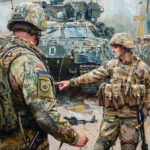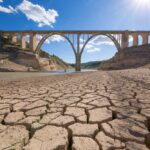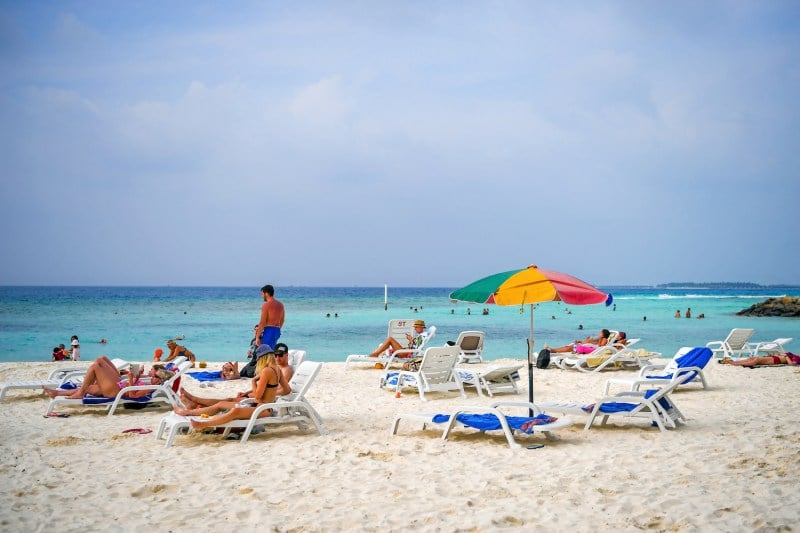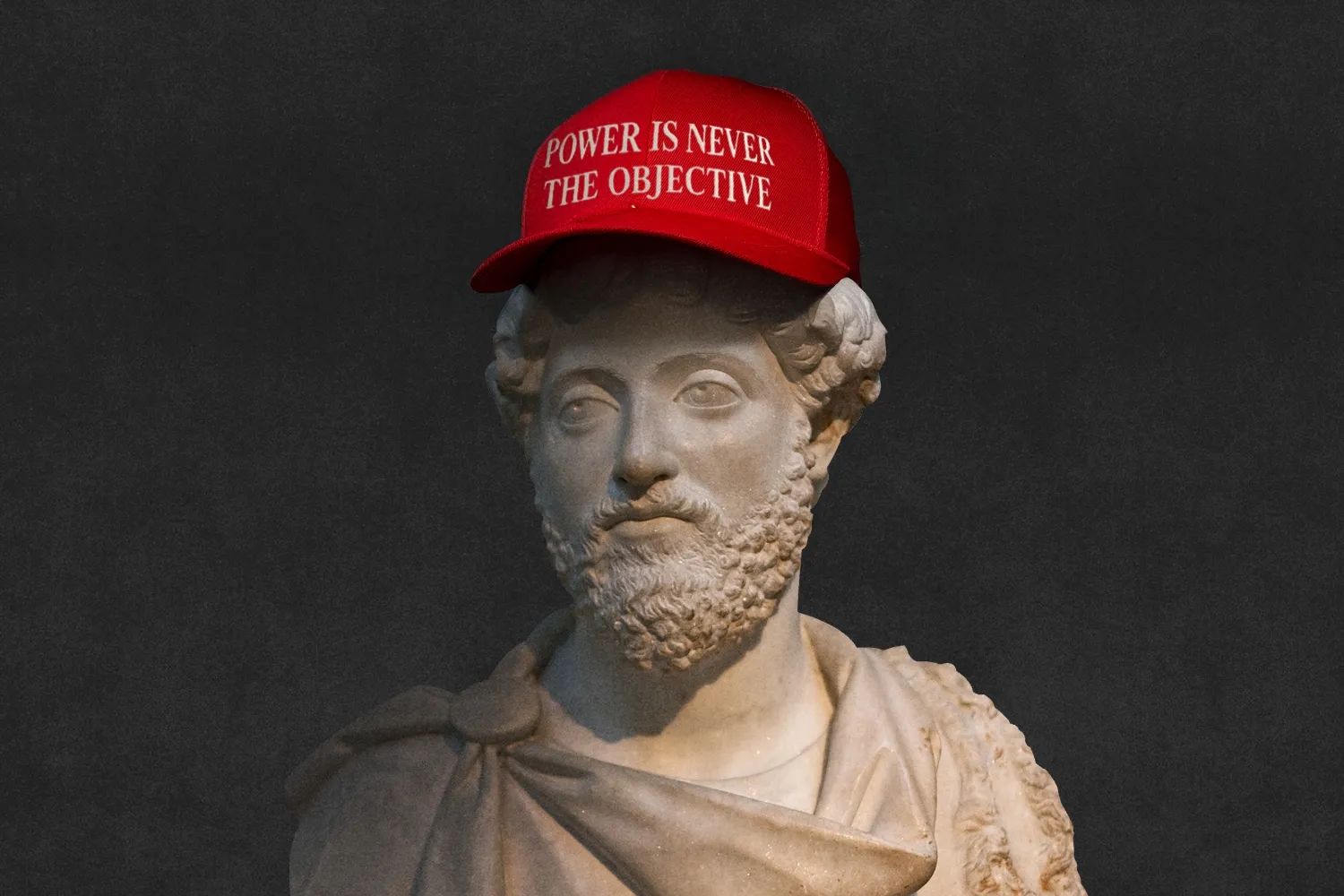Ecuador’s Election Surprise

Ecuador’s Election Surprise
A wider-than-expected victory for incumbent Daniel Noboa keeps Ecuador in the pro-Trump camp
Ecuadorian President Daniel Noboa gives a thumbs-up to supporters from a balcony of the Carondelet Palace in Quito on April 15, two days after winning reelection. Rodrigo Buendia/AFP via Getty Images
Welcome back to Foreign Policy’s Latin America Brief.
The highlights this week: Ecuador’s president easily wins reelection, Argentina notches a new International Monetary Fund deal, and the latest in the battle over U.S. deportations to El Salvador.
Welcome back to Foreign Policy’s Latin America Brief.
The highlights this week: Ecuador’s president easily wins reelection, Argentina notches a new International Monetary Fund deal, and the latest in the battle over U.S. deportations to El Salvador.
Noboa Coasts to Victory in Ecuador
In many countries holding elections this year, perceived closeness to U.S. President Donald Trump has hurt politicians on the right.
Canada’s Conservative candidate for prime minister, once a shoo-in for the job, is now slumping in polls ahead of the April 28 vote. In Australia, where elections are scheduled for May 3, the center-left Labor Party has seen a swell in support as the center-right candidate struggles to differentiate himself from Trump.
That logic did not extend to Ecuador’s presidential runoff last weekend. Center-right President Daniel Noboa, who has embraced security cooperation with the Trump administration, won in an 11-point victory over his leftist opponent, Luisa González.
Noboa played up his ties to Trump during the campaign and visited Mar-a-Lago for talks with the U.S. president. Cooperation with the United States is an “important part” of Noboa’s flagship policy: his tough crackdown on crime, journalist Mie Hoejris Dahl wrote in Foreign Policy before the vote.
Still, foreign policy alone did not decide Ecuador’s election—and nearly a week after Sunday’s vote, analysts are still puzzling over the results. That’s because González appeared to gain almost no votes between the first-round election, which included more than 10 candidates, and the runoff. Opinion surveys, including exit polls, missed the apparent late wave of support for Noboa.
Independent election observers from the Organization of American States said the situation on election day was one of “calm” and “normality.” Noboa’s victory appears to be due to his effective campaigning—and voters’ premonitions about González—even as the leftist candidate alleges that election fraud took place.
González is a protégée of former Ecuadorian President Rafael Correa, who remains a divisive figure. Correa “had clear authoritarian tendencies and entered into self-imposed exile in Belgium” after leaving office in 2017, Oliver Stuenkel and Margot Treadwell wrote in Foreign Policy this week. In 2020, an Ecuadorian court convicted the former president of accepting bribes.
Since Correa left office, a member of his movement—known as Correísmo—has made every presidential runoff. But losses in the last three of those contests have led observers to question Correísmo’s effectiveness as the main organizing force on the Ecuadorian left.
“This isn’t the end of Correísmo,” political analyst Jacobo García wrote on X on Wednesday. “It’s the end of attempts to retake power via remote control”—a reference to Correa’s continued influence from Belgium. That, García argued, has prevented the movement from developing into an “autonomous” force.
Correísmo tried to mend one of its long-standing problems in this election by stitching together a declaration of support from a leader of the Indigenous Pachakutik party. Indigenous voters supported Correa in the mid-2000s but decamped after his administration drilled on their lands and repressed Indigenous activism.
Although González insisted that she would treat Indigenous voters with respect, many remained skeptical. Endorsements of González from some of Pachakutik’s leaders fractured the Indigenous movement.
“The last time correismo was in power, they tried to exterminate the [Indigenous] peoples and nations,” Indigenous leader Fernando Guaman told Al Jazeera ahead of the vote. “They minimised Indigenous people. They humiliated us.”
Noboa’s ability to mobilize government resources for a nationwide get-out-the-vote operation also appears to have helped his performance, observers said. Noboa largely refused to step down from presidential duties during the campaign, as is legally mandated in Ecuador.
His large margin of victory underscores how unpredictable elections can be in Latin America. The region’s first presidential contest of the year has been decided. Bolivia, Chile, and Honduras are up next.
Upcoming Events
Thursday, April 24, to Monday, May 12: Buenos Aires holds its international book fair.
Wednesday, April 23: Santiago Bausili, the governor of Argentina’s central bank, speaks at the International Monetary Fund and World Bank spring meetings in Washington.
Monday, April 28, to Tuesday, April 29: BRICS foreign ministers meet in Brasília, Brazil.
What We’re Following
Argentina’s IMF deal. The International Monetary Fund (IMF) published key details of its new loan agreement with Argentina last week, paving the way for Buenos Aires to relax many of its currency and capital controls.
Argentine President Javier Milei has based his political identity around free market capitalism. But during the first year of his administration, he kept in place many harsh restrictions on how money can enter and leave the country, as well as controls on the official exchange rate with the U.S. dollar. Removing all controls at once risked a destabilizing rush to move money abroad.
Now that Milei has implemented some of his phase-one reforms to reduce inflation and the country’s deficit, the IMF announced a new $20 billion loan package for Argentina and made its first disbursement. Argentina’s peso was allowed to float more freely against the dollar on Monday, staying within a set range to continue gradual liberalization.
El Salvador expulsions. The U.S. legal battle over Trump’s deportations to El Salvador escalated this week as Salvadoran President Nayib Bukele visited the White House and a U.S. senator traveled to El Salvador to try to access the maximum security prison where migrants are being held.
The U.S. Supreme Court on April 10 ordered the Trump administration to “facilitate” the return of Kilmar Abrego García, whom the administration acknowledged it erroneously expelled. But in the Oval Office, Bukele said El Salvador did not have the power to release Abrego García.
In response, U.S. Sen. Chris Van Hollen, a Democrat from Maryland—where Abrego García lived with protected status—traveled to “check on his condition and discuss his return.”
When Van Hollen sought access to Abrego García on Wednesday, El Salvador’s vice president denied the senator entry to the prison and told him that El Salvador would not release Abrego García because the United States was paying for his incarceration. On Thursday night, Van Hollen said that he was finally able to meet with Abrego García.
The recent migrant transfers may prompt criminal charges. Abrego García’s lawyers have called for a judge to evaluate whether Trump is in contempt of court. In a separate case, a judge said on Wednesday that there was “probable cause” to hold the Trump administration in contempt after it failed to turn back deportation planes to El Salvador following a court order.
An aerial view of the CEME 1 solar plant near the town of Maria Elena, Chile, on July 8, 2024.Pablo Rojas/AFP via Getty Images
Chile’s battery boom. U.K.-based energy firm ContourGlobal inaugurated the first two of three sections of what it called Latin America’s largest plant to combine solar power generation with battery storage last week. The plant, on the edge of Chile’s Atacama Desert, is expected to begin commercial operations in the coming months.
The plant’s first two sections will be able to provide 1.2 gigawatt-hours of battery storage, roughly doubling Chile’s existing capacity. With abundant sunlight and wind, Chile is well placed for renewable energy generation. But last year, the country wasted large amounts of renewable energy because it lacked enough large-scale energy storage.
To increase its storage capacity, Chile’s government has set targets and created incentives for expanding battery plants. It is now experiencing a large-scale battery boom. Chile now has one of the highest levels of per capita battery storage in the world.
Question of the Week
Easter is on Sunday. In which country does the run-up to the holiday feature a person dressed as a devil whipping people in public for their sins?
Brazil
Argentina
El Salvador
Guyana
The event symbolizes the battle between good and evil.
FP’s Most Read This Week
- Why Beijing Thinks It Can Beat Trump by Scott Kennedy
- The Awful History of Tariffs and Depressions by Scott Reynolds Nelson
- Why Beijing Is Standing Up to Trump by Deng Yuwen
In Focus: Peru’s Literary Giant
Peruvian writer Mario Vargas Llosa talks to Andean peasants in Cajamarca, Peru, during his 1988 presidential campaign, in an undated photo.Niceforo Ruiz/AFP via Getty Images
Peruvian novelist, journalist, politician, and Nobel laureate Mario Vargas Llosa died on Sunday at age 89. Peru declared an official mourning period as tributes rolled in from across the region.
Vargas Llosa’s career was intertwined with Latin American political history. His early writings in the 1960s critiqued the military’s role in society. Vargas Llosa’s work soon became known internationally as part of a literary movement known as the Latin American Boom. It included writers such as Colombia’s Gabriel García Márquez and Mexico’s Carlos Fuentes—all backed, as Vargos Llosa was, by literary agent Carmen Balcells.
The Latin American Boom “was greatly influenced by both the triumphs and failures of the Cuban revolution,” political scientist Andrea Moncada wrote in Foreign Policy’s obituary of Vargas Llosa. Its “own rise and fall paralleled Cuba’s struggles and the broader contest between the two reigning ideologies of the age, socialism and capitalism.”
Vargas Llosa admired the revolution at first, but he became a critic when Cuban leader Fidel Castro’s administration put dissidents in labor camps and supported the 1968 Soviet invasion of Czechoslovakia. This put him at odds with García Márquez, who avoided criticizing Castro. (Vargas Llosa once punched García Márquez in a fight—though it was reportedly over a woman, not politics.)
Teaching internationally, Vargas Llosa was a perennial interpreter of Latin America to the world. In a 1984 essay in the Atlantic, he lamented international press coverage of the region: “To judge by what they write, one would have to conclude that in the Latin American countries, the bad news is the only ‘story’ worth reporting.”
Vargas Llosa later embraced pro-market liberalism and ran unsuccessfully for president in Peru against Alberto Fujimori in 1990. In the final years of his life, he supported Fujimori’s daughter, Keiko Fujimori, and criticized left-wing politicians across the region—even democratic ones—leaving some of his fans with a bitter taste.
Vargas Llosa embraced a “right-wing conservative position that had nothing to do with his past,” Peruvian journalist César Hildebrandt said this week. But Hildebrandt praised Vargas Llosa’s work, saying it showed that “literature could turn consciousness into miracles.”
“In this time when people are not reading … young people should return to books,” he added, “and Mario can be a great pretext and magnet for that.”
Catherine Osborn is the writer of Foreign Policy’s weekly Latin America Brief. She is a print and radio journalist based in Rio de Janeiro. X: @cculbertosborn
More from Foreign Policy
-

U.S. President Donald Trump gives a thumbs-up upon arrival at Joint Base Andrews in Maryland after spending the weekend at Mar-a-Lago. How to Ruin a Country
A step-by-step guide to Donald Trump’s destruction of U.S. foreign policy.
-

Chinese President Xi Jinping arrives for a meeting with Vietnamese National Assembly Chairman Tran Thanh Man in Hanoi on April 14. Why Beijing Is Standing Up to Trump
Chinese leaders have their pride, too.
-

Russian soldiers practice marching Why Don’t Russian Soldiers Revolt?
Astonishing death rates and brutal abuse have not kept troops from following orders.
-

An illustration shows a police officer trying to sudue a panicked mob of men. The Awful History of Tariffs and Depressions
What the 19th century teaches us about what happens next.











Join the Conversation
Commenting on this and other recent articles is just one benefit of a Foreign Policy subscription.
Already a subscriber?
.
Subscribe
Subscribe
View Comments
Join the Conversation
Join the conversation on this and other recent Foreign Policy articles when you subscribe now.
Subscribe
Subscribe
Not your account?
View Comments
Join the Conversation
Please follow our comment guidelines, stay on topic, and be civil, courteous, and respectful of others’ beliefs.
Change your username |
Log out
Change your username:
CANCEL
Confirm your username to get started.
The default username below has been generated using the first name and last initial on your FP subscriber account. Usernames may be updated at any time and must not contain inappropriate or offensive language.